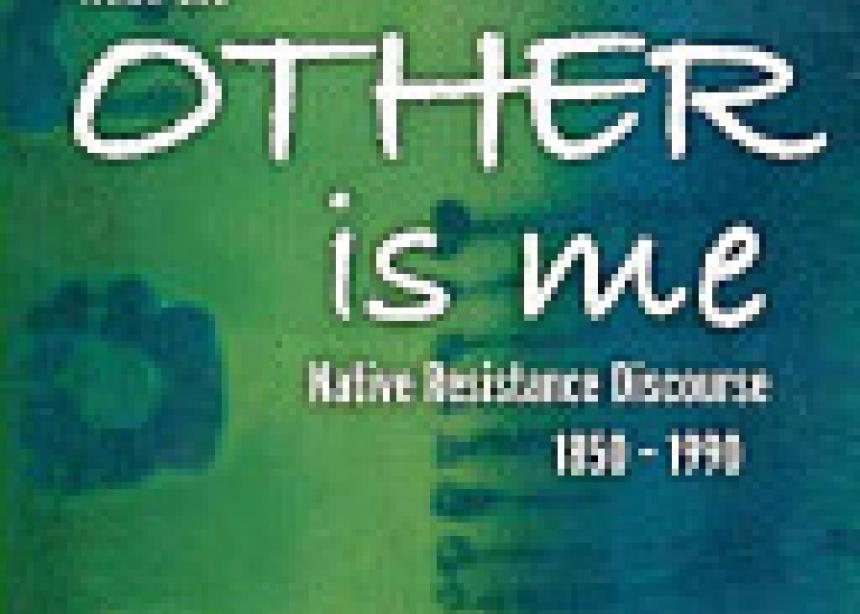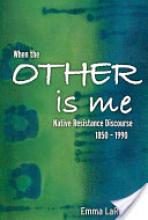I've been borrowing books from the Mennonite Church Canada Resource Centre and highly recommend their "recommended titles."
Recently, I finished Emma LaRocque's "When the Other is Me." According to one summary online, in this book, "Emma LaRocque presents a powerful interdisciplinary study of the Native literary response to racist writing in the Canadian historical and literary record from 1850 to 1990." A little heady, but I go for that kind of bedtime reading sometimes!
LaRocque's writing challenged me to the next level. It's not enough just to be aware of how issues affect indigenous people in Canada. Now what? She pushes Canadians to consider how the colonial paradigm has infiltrated all aspects of society, and that the colonial paradigm is by nature a racist one.
She also outlines how native Canadians have been resisting this paradigm since the first encounters, and later through even with the colonizers' language in literature and academic writing. Indiginous people do not just passively accept these narratives, but push back and seek to transform the stories and our society.
When reading her book, I'm challenged to question assumptions of how I have viewed Canadian society. I used to have the sense of pride that she points out many Canadians have in being "peacemakers." Pointing fingers south and saying that at least we have a better history than the United States.
But, she highlights, in many ways this "peacemaking myth" is just as bad if not worse. The underlying colonial ideas are still there, but we justify them and even turn them around and label them as "peacemaking," while still enforcing one worldview on all of society.
Our whole system and way of thinking is rooted in the promotion one group of people's ideas and ways of being over others, to the point that any "science" and academic argument is also saturated with that way of thinking. Nothing is objective. We need to re-think everything and try perspectives of our society from different centres, not just a Euro-Canadian one.
They say you can't change the past, but we already are as we start to tell stories differently, teaching different narratives in schools, and reassessing what archives and historical documents we value. This is a chance to rewrite our history to bring out voices that have long been suppressed and thus reshape the story of Canadian identity.
As Christians in Canada, how do we respond to this? Can we humbly look at ourselves differently and start to shift the narratives? Can we trust God's spirit of reconciliation and transformation even in this upheaval of Canadian society as we know it? And even if it means discomfort and some pain for those who have been in places of prestige, including Christians, can we believe that God's work is good?



Add new comment
Canadian Mennonite invites comments and encourages constructive discussion about our content. Actual full names (first and last) are required. Comments are moderated and may be edited. They will not appear online until approved and will be posted during business hours. Some comments may be reproduced in print.